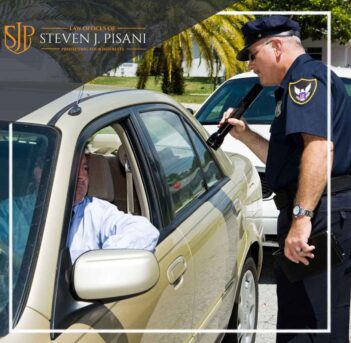
Serving People Throughout Colorado
Call Us For Free Consultation:
The Fourth Amendment protects United States citizens against unjustified searches and seizures by law enforcement. It provides a foundational structure dictating the circumstances and methods police can use to conduct searches.
Although this amendment is in place to protect innocent people, we continue to see illegal searches and seizures performed across our state. If you are arrested following an unlawful search, contacting our defense lawyer in Colorado for assistance is recommended.
Unlawful searches and seizures typically occur without consent, probable cause, or a valid warrant. Instances where minor violations are exploited by police for further investigation may also constitute violations of the Fourth Amendment. Racial profiling by law enforcement officers is another form of infringement.
Identifying unconstitutional searches and seizures may be challenging, but individuals should document encounters they suspect violate their rights and seek legal counsel immediately. An experienced Colorado criminal defense attorney can evaluate the case and develop a strong defense strategy.
In specific scenarios, law enforcement officers must seek a search warrant from the court before searching your property or person. This process requires an officer to submit an affidavit and appear before an impartial magistrate. The officer must demonstrate probable cause for searching an individual, business, vehicle, or residence.
Probable cause is often based on the following factors:
Upon presentation of the officer’s arguments, the judge may grant or deny the warrant request. If issued, the warrant specifies the location of the search and the items sought by law enforcement. Furthermore, the search may be confined to particular areas within a residence.
The Fourth Amendment protects you from any situation in which you or your property has been seized by law enforcement through stops or arrests. Additionally, if the search occurs in a location with a reasonable expectation of privacy, you may have some degree of protection from unlawful searches and seizures.
These safeguards regulate searches and detentions, preventing unlawfully seized items from being used as evidence in criminal proceedings. However, the extent of protection varies depending on the search and arrest circumstances.
Typically, law enforcement officers seek valid warrants before conducting searches. A warrantless search of a residence may constitute illegality. Individuals should inform a defense lawyer in Colorado if their home is searched without a valid warrant.
Several circumstances exist where the Fourth Amendment applies. Some of the most common include:
In general, anyone who believes that they were searched in a situation where Fourth Amendment protections apply should contact our defense lawyer in Colorado. We will be able to determine whether you were subjected to a wrongful search and take the appropriate actions to protect your rights.
Federal and Colorado State Courts recognize exceptions where law enforcement officers can conduct searches without warrants. These exceptions include:
Limited searches are permitted if officers have reasonable suspicion of a crime and suspect the presence of a weapon, allowing pat-downs to detect concealed arms.
Searches conducted without warrants after lawful arrests, including individuals, their clothing, and immediate surroundings within reach.
Emergencies necessitating immediate action by law enforcement include the imminent destruction of evidence or the risk of harm to others.
If you suspect you have been the subject of an illegal search and seizure, you need to seek help from our Colorado criminal defense attorney immediately. Our team can review the circumstances surrounding your search and subsequent arrest to determine your legal options.
The Law Offices of Steven J. Pisani firmly believes in protecting the rights of every individual, including those who are accused of a crime. Our defense lawyer in Colorado’s specialized focus on criminal defense cases demonstrates our deep understanding and knowledge of the Colorado Court system.
Whether challenging illegal search and seizure or defending against charges like domestic violence, DUI, or assault, our team at the Law Offices of Steven J. Pisani provides top-quality legal services to their clients. If you face criminal charges in Colorado, contact our team immediately for effective and dedicated representation that fights for your rights and freedom.
